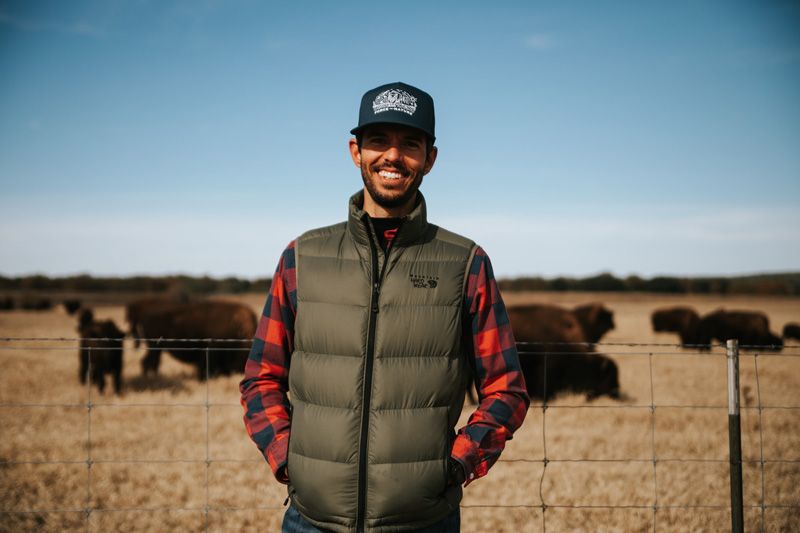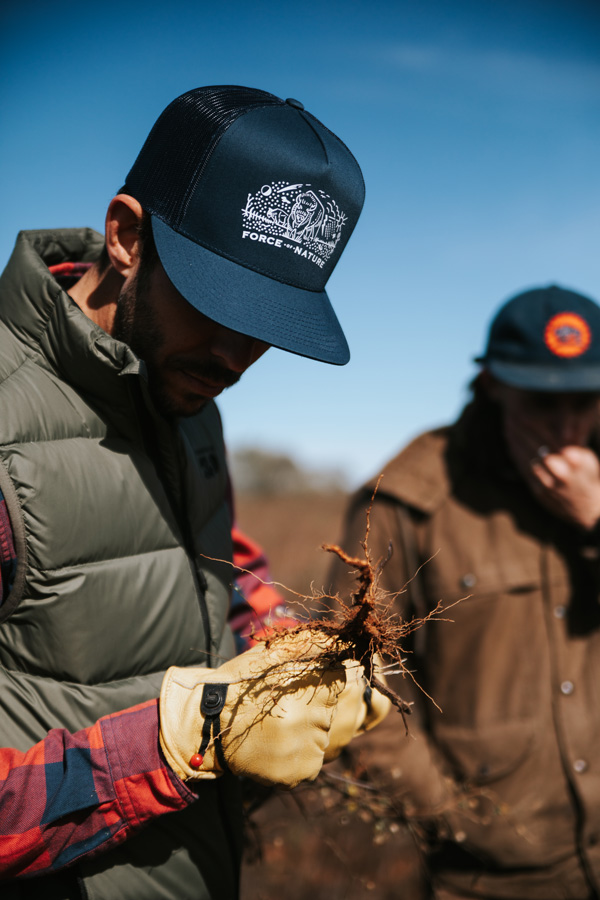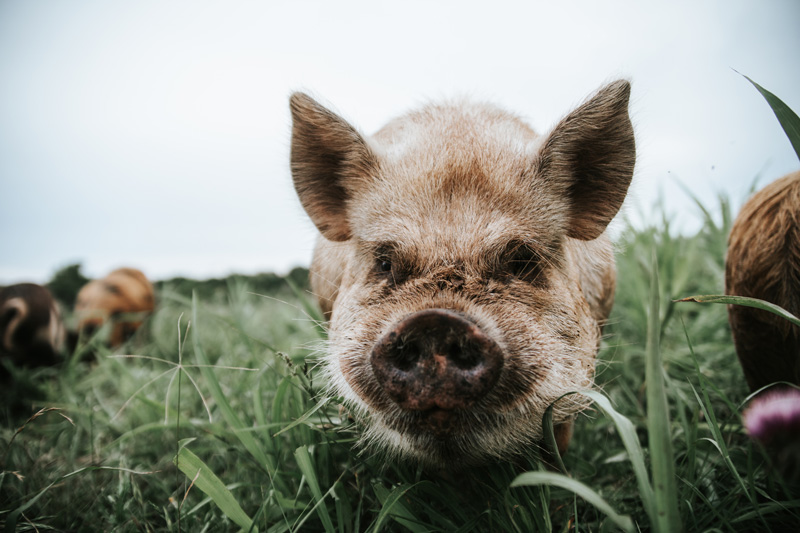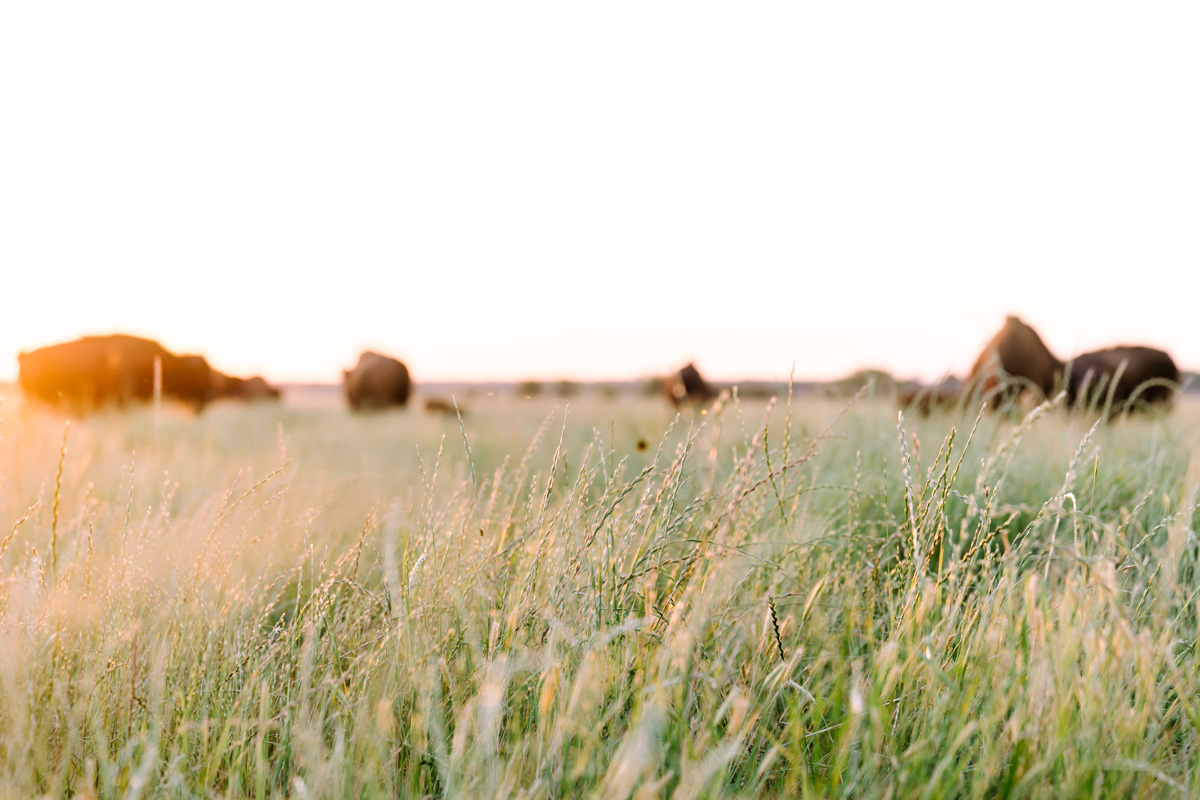Regenerative agriculture is a hot topic these days, thanks to new Netflix documentaries like “Kiss the Ground,” along with thought-provoking podcasts, books, and TED Talks. The Austin-based entrepreneur Robby Sansom is contributing to this dialogue at his company, Force of Nature, which supplies clean meat to businesses and consumers from animals raised on regenerative farms.

The co-founder and CEO started the business after years of studying its principles and visiting ranches around the world. Today, he has built a global supply chain complete with land stewards, farmers, and ranchers, all of whom are committed to driving positive change through this approach.
Regenerative agriculture proposes a promising solution for repairing damage caused by years of harmful farming techniques, while paving a path toward a more sustainable future. One of the ways it does this is by using ruminant animals, such as cattle, goats, sheep, and deer to aerate or “till” the land. Years ago, millions of bison roamed the U.S. Plains where industrial crops now grow on arid fields. “They played such a key role in our soil builders,” said Sansom. “We’ve disrupted this harmony in nature.”
Having a diversity of plants and animals exist in a symbiotic relationship is Mother Nature’s intention. And as they say, mother knows best. Through properly managed grazing techniques, along with other sustainable land management practices, studies show that soil health will improve, deep-rooted grasses will be stimulated, and atmospheric carbon will be sequestered back into the earth.

“We are all carbon-based life – we need carbon to survive,” Sansom said. “What we need is the carbon to be back in the soil.”
Today, every pound of Force of Nature beef has the potential to sequester 3.5 pounds of greenhouse gas emissions.
Education is a central tenant for inspiring change and Sansom is passionate about sharing his knowledge. “We want to be a content creation company… Our job isn’t to sell you our product but to connect you with issues that are relevant,” he said adding, “We want to be a conduit.”
Since founding Force of Nature, Sansom and his team have attracted a legion of like-minded followers who are committed to change. Mahatma Gandhi once said, “If you want to change the world, start with yourself.” Indeed, true change begins on a personal level, and Sansom believes each person must ask themselves how they plan to leave the world a better place.
Choosing to eat a regenerative diet, like meat from farms with pasture-raised, grass-fed, humanely-killed animals, is one step consumers can take to be a part of the solution. Force of Nature offers a range of proteins like venison steaks, grass-fed ground elk, and Iberico bacon, and they are the only nationally distributed brand offering 100% grass-fed and finished bison. Choosing meats from these farms gives consumers the opportunity to engage and support a process that’s rebuilding ecosystems while healing the health of the planet.
Healthy meat is made from healthy animals. Healthy animals are made in healthy environments. And healthy environments are made with healthy soil. Sansom said there’s an interconnectedness to everything, and the quality of our food and the future of our food system relies on managing a system that promotes resilience.
“If we reemploy those practices and allow nature to be optimized, we can start to rebuild and regenerate our soils, our ecosystems, and the fertility in our agricultural areas that makes the land healthy and consumers healthy that are eating that food,” shared Sansom.
Another step toward progress is supporting the farmers who have committed to regenerative techniques. “We want to be a brand that supports producers in implementing these practices,” he said.

Sansom and his team are also striving to reconnect consumers to food by sharing their different suppliers’ stories, be it a family operation in Texas, like Roam Ranch, or a property as far away as New Zealand. For many of the farmers in their network, the old, conventional system was no longer profitable.
“That’s why you see such a decline in rural America,” said Sansom. “I believe in the family farmer and I want to help them. We’re trying to create hope.” In this way, Sansom, his team, and his wide-ranging clientele are helping farmers keep their legacies alive, all while taking action toward rebuilding the ecosystems they rely on.
Currently, the company has a plethora of resources available online to help consumers face the learning curve around regenerative agriculture. From an informative blog to an illuminating social media presence, these channels are tools for inspiring others to be conscious consumers. Furthermore, the content provides an opportunity to learn and understand how proper land management and stewardship can boost the recovery and regeneration of the earth.
“We want to be a lifestyle brand … to tell the story of food and educate consumers on what’s going on.” That transparency is a focal point for the entrepreneur, who hopes to make the industry a more open and honest place for the future.
“Right now, meat is under attack,” he said. “The truth is meat isn’t the problem, the system is the problem… Regeneratively raised meat is the only practical solution.”
Reclaiming the legacy of meat is the focus at Force of Nature, as is empowering consumers to be informed, regardless of the food in question.
Right now, meat is under attack. The truth is meat isn’t the problem, the system is the problem…Regeneratively raised Meat is the only practical solution.
– Robby Sansom
Today, there is a growing push to move away from meat towards a plant-based diet, though Sansom is quick to rebuke this misleading narrative. “Meat is critically important to a healthy diet,” he argued. “There are not many items out there that are more nutrient-dense.”
Furthermore, the new trend toward “meatless meats” raises its own questions and concerns about the highly processed plant and cell-based technology being utilized.
The conversation is just beginning, though Sansom’s work at Force of Nature is one foundation for change. The choice to participate with a process that will shape the world for future generations is in consumers’ hands.
Moving forward, Sansom and his team are devoted to raising awareness of their message. Long-term, they hope regenerative agriculture becomes a household term and something of value for people all over the globe.
“Value for us isn’t defined as a company that pumps out a lot of cash,” he said adding, “Value for us is defined on a triple bottom line – profit, but also people and planet.”


